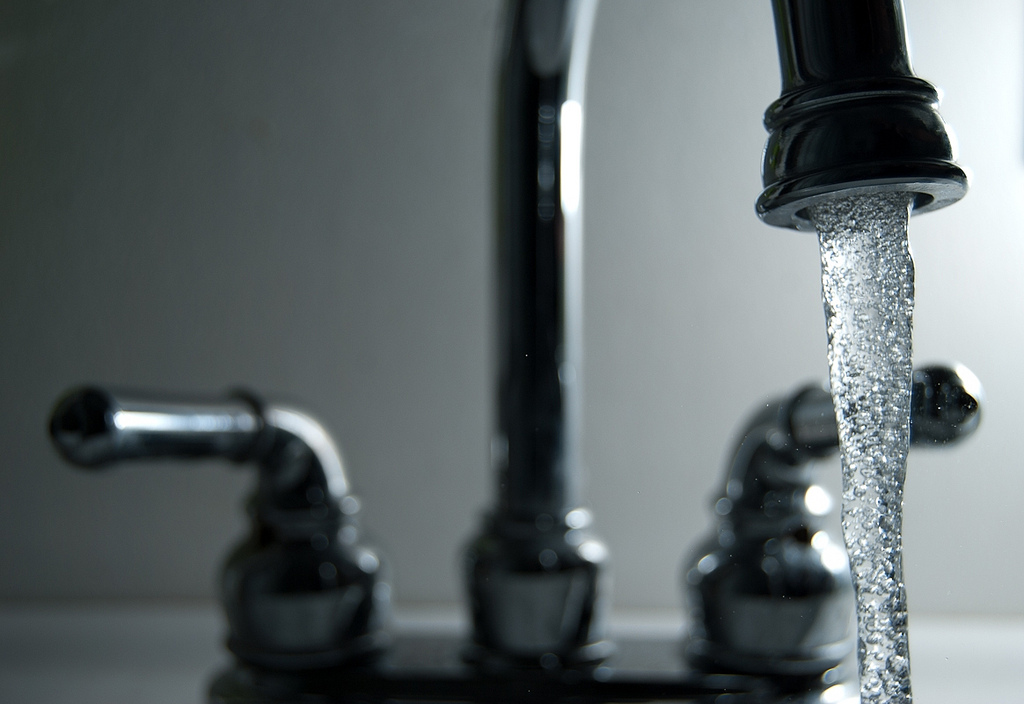A broken kitchen sink explains everything that’s wrong with socialism
The wonders of a newly installed kitchen sink remind me how I learned that socialism is an irredeemably corrupt system that will always fail.
 One of the things that I haven’t blogged in 2017 about is the fact that, owing to storm damage in January, I’ve been without a functioning kitchen this year. Six and a half months is a long time, which can only be explained by a lot of “becauses”: Because I’m not the only one who suffered from this, because Marin has very low unemployment, and because a lot of contractors closed up shop and moved away during the height of the recession, finding skilled labor to rebuild the kitchen has been difficult.
One of the things that I haven’t blogged in 2017 about is the fact that, owing to storm damage in January, I’ve been without a functioning kitchen this year. Six and a half months is a long time, which can only be explained by a lot of “becauses”: Because I’m not the only one who suffered from this, because Marin has very low unemployment, and because a lot of contractors closed up shop and moved away during the height of the recession, finding skilled labor to rebuild the kitchen has been difficult.
Things are finally starting to come together, though. I got my new counter two weeks ago. I got the new floor one week ago but it was installed wrong, so I need a new new floor. Last week, my stove and oven were reconnected. That’s all been exciting and, occasionally, frustrating.
But today! Today is a special day. Today I have running water in my kitchen.
Please understand that I’ve had running water in my house all along. With two bathrooms, there’s been water upstairs from the kitchen and downstairs from the kitchen. (Our house is built on a hill, so what would ordinarily be a two-story house is a sprawling two-and-a-half story house.) There just hasn’t been water in the kitchen.
It’s not until you don’t have water in the kitchen that you realize how much you depend upon that kitchen sink. Everything from quickly rinsing your hands after eating something greasy or sticky, to washing fruits, to cleaning dishes, is easier — much easier — when you have a kitchen sink.
But you know what the most important thing is about a kitchen sink? A kitchen sink explains why communism stinks. Yes, that sounds like a non-sequitur, but it isn’t. Instead, the case of the missing kitchen sink in East Berlin explains why, when Democrats moved hard Left, I baulked and, instead, moved right. This story begins in the 1920s in Berlin….
My father’s sister was a die-hard communist. She rose up through the ranks in Weimar Germany, only to leave the country in a hurry when it became clear that it was no place for communist Jewish women. (You can read more about how both my paternal and maternal sides of the family survived the war here.) My aunt ended up in British mandate Palestine, where she married and had a child.
My aunt wasn’t the only Jewish socialist in British mandate Palestine. The kibbutzim were socialist experiments. The moshavs were semi-socialist experiments. After the founding of the modern State of Israel, the original government was set up to be socialist, including (of course) socialized medicine.
None of that, though, was enough for my aunt. She craved the real deal when it came to socialism — only hardcore Stalinist communism was good enough for her. And, lucky for her, that was precisely what was in place in East Germany. It was hardcore communism with a German accent and, presumably, German efficiency to make it really work. It was in East Germany, my aunt knew, that real Communism would reach its perfect state.
With that last sentence in mind, please take a moment to enjoy this brilliant tweet:
Difference between Nazi and Communist is when you say how horrible Nazis have been, they don’t say, “Well, real Nazism has never been tried”
— Frank J. Fleming (@IMAO_) August 4, 2017
And now back to my narrative about kitchen sinks and communism.
With East Germany firmly under communist control, in 1950, my aunt abandoned her husband and child to make the pilgrimage to her personal Promised Land. This journey involved turning a deaf ear to those who asked, “After what the Germans did to the Jews, how can you go back there?” It was easy, she replied. “Communism has purified East Germany.”
In a way, she was right. In East Germany, the average WWII-era German was punished by a long, cruel occupation. Sadly, though, so were the children and grandchildren of those WWII-era Germans. Meanwhile, the equally complicit WWII-era Germans in West Germany enjoyed a phenomenal economic boom, one, moreover, that left them with a guilt that they could assuage only by inviting in millions of people just as murderously antisemitic as the Nazis. But I digress….
My aunt, being a true believer, was unfazed by the deprivation and tyranny in East Berlin. She agreed with the tyranny and, as a party apparatchik, avoided the worst of the deprivation. So the years flew by, with my aunt making her way through the mid-level party ranks.
Meanwhile, my father was making an inadequate living (at least by my mother’s standards) in the very heart of the capitalist monster, America. Buy here’s a point for you to ponder: My dad, a teacher, got a very small salary given his skill sets and his hours. My mother always felt underfunded. Yet despite the fact that we were “poor,” as the years went by we had cars, dishwashers, washers & dryers, televisions, orthodontics, a nice house in a safe neighborhood, health insurance, adequate (although never stylish) clothes, etc.
The only reason we were “poor” was because my mother wanted all those things at a middle class level, while my dad was bringing in a working class income. Even the “poor” in America were better off than all but the top inner circles in communist countries.
In 1988, my father learned that the City of Berlin was providing all-expense paid trips for those Jews born in Berlin who had survived the war. Also by 1988, in order to raise western cash, East Germany was making it easier to get entry visas. (The visas weren’t just profitable for entry fees. People who visited there were periodically arrested on trumped-up charges that vanished the moment their friends and families ponied up enormous “reparation” monies to get them released.)
Being somewhat sentimental, my father got the visa and reunited with his sister for the first time in almost 40 years. Once in East Berlin, he learned that his sister’s years of faithful service to the East German government had paid off — she had an entire apartment to herself, including her own bathroom. This was, she gave my father to understand, something extraordinary for a single, retired woman, and it reflected true appreciation for her contributions to the state.
There were a few problems, though. One of them was the fact that the kitchen sink in this full-service, private apartment was broken. My aunt assured my father, though, that this was not a big problem. Thanks to the fact that her exalted status had gotten her a private bathroom, she was able to get her drinking water and do all of her washing-up done using the bathroom sink.
In any event, she said, “I’m on the list to get the sink fixed.”
“How long have you been on the list?” asked my father.
“Nine years,” she answered. “But I’m on the list.”
When Daddy came home from his trip and told that story, I knew right then and there everything that was wrong with socialism. That anecdote encapsulated the fact that, when government controls everything and has the sole authority to redistribute both wealth and power to its favorites, it promotes corruption on a national scale — and even that redistributive power cannot protect even the privileged few from the way in which socialism, by depriving people of the true value of their labor, destroys initiative and independence.
There is no “right” way to do socialism. It is inherently wrong insofar as it inevitably encourages vice and discourages virtue.

